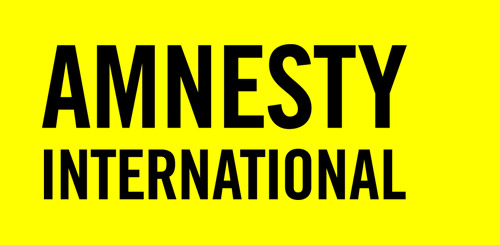Authorities should investigate the arson attack on the house of Murdani, the executive director of the Indonesian Forum for the Environment (Walhi) for West Nusa Tenggara (NTB) Branch, identify the perpetrators and determine whether it was connected to his work as a human rights defender, Amnesty International Indonesia said today. This call follows Amnesty’s own investigation of the blaze’s aftermath, which revealed signs of an elaborate attack that may amount to an assassination attempt.
“It has now been weeks since this terrifying fire, and authorities do not seem to be handling the case with any seriousness or urgency. Despite the many threats Murdani has received over the years in relation to his work, and even days before the blaze, the police have publicly mooted theories to cast a respected environmental activist in a negative light,” Amnesty International Indonesia’s Executive Director Usman Hamid said.
A fire engulfed the house in Menemeng village in Lombok, NTB, in the early hours of January 28, while Murdani, his wife, their four-year-old daughter and 17-year-old son were asleep.
On January 30, Amnesty International visited the house, interviewed Murdani and his family members as well as witnesses and local police to collect evidence on the incident.
“Several fires were started outside the house, ostensibly blocking out potential escape routes,” said Usman Hamid. “The only water source in the compound was also blocked.”
Neighbors who intervened to put out the fire found that the water sewage dyke located in Murdani’s back yard was dried out. They told Amnesty that this was very unusual, as water flows through the dyke every day, and that they found a deliberate blockage about 400 meters down from Murdani’s house.
“We call on the police to thoroughly investigate the case and bring perpetrators to justice. It is also imperative for the police to provide effective protection to Murdani and his family members after the attack,” Usman said.
A systematic arson attack
Amnesty’s investigation found that fires were started in four different spots in the compound. The largest fire started from Murdani’s minivan, parked adjacent to the house. The assailants set fire to the vehicle by burning a pillow and a t-shirt underneath it with gasoline. This fire was the most elaborate of the four, and burned half the house down.
As the fire engulfed the house, Murdani took the daughter in his arms and jumped down from the first floor to make an escape as the staircase was ablaze. His wife and son screamed loudly from the window on the second floor, calling out to neighbors for help.
Murdani tried to exit the building through the living room door but found the assailants had also set fire to it. Not giving up, Murdani tried to escape through the kitchen but found that exit was also engulfed in a separate blaze. He managed to escape through the main door, which is made of iron and located facing the main street.
Attack on a human rights defender
Murdani has been advocating a number of environmental and humanitarian issues in the tourism and natural resources-rich province including waste management, illegal logging and sand mining, as well as natural disaster relief.
In the past years, he has been very vocal to help farmers to reject attempts by local businessmen to eye 200-hectare land for sand mining.
In 2016 Murdani received a death threat through an SMS from an unidentified sender, saying that he had been a ‘disturber’ for challenging illegal sand mining activity.
The SMS message read: “if you still want to live, you must stop interfering with the sand mining business.”
Murdani had reported the 2016 death threat to the police but they did not take any action. Since the death threat, Murdani’s house was stoned by unidentified people, including days before the arson attacks.
Police responses and failures to identify perpetrators
Murdani told Amnesty International that his wife and 17-year-old son were still traumatized after the arson.
“If the police do not find the perpetrators, the community and everyone who campaigned against mining will feel threatened. They could experience the same thing that I did. So, it is important for the police to find the assailants and bring them to justice,” Murdani said.
On January 30, Central Lombok police investigation head stated to the Lombok Post that the police were investigating whether Murdani had burned his own house down. In an interview with Amnesty International, the Central Lombok police chief subsequently denied all statements published by the paper.
“The police investigation must give adequate consideration to whether the attack was related to his work as human rights defender,” Usman Hamid said.
On 13 February, the Central Lombok police hold a meeting with Murdani and his team of lawyers. They said that they had questioned around 30 witnesses in the case. The police cited three possible motives for the attacks: his campaign against sand mining, alleged debts, and his rivalry with other candidates during the previous village head elections.
Perpetrators of attacks against human rights defenders are rarely brought to justice. Other unresolved cases include the acid attack against Corruption Eradication Commission (KPK) investigator Novel Baswedan in April 2017, the arson attacks on the houses of KPK chairman and deputy chairman, Agus Rahardjo and Laode Muhammad Syarif in January 2018 , as well as against Indonesia Corruption Watch (ICW) activist Tama Satya Langkun in 2010.
“Human rights defenders working to protect the environment and opposing corruption are too often the target of attacks in Indonesia. It is imperative that the authorities provide them with a safe and enabling environment to carry out their work. This includes ensuring that perpetrators are brought to justice,” Usman said.
For more information, please contact Elizabeth Berton-Hunter, Media Relations 416-363-9933 ext 332 bberton-hunter@amnesty.ca













